'King of fruits' helps connect Chinese and Malaysian people
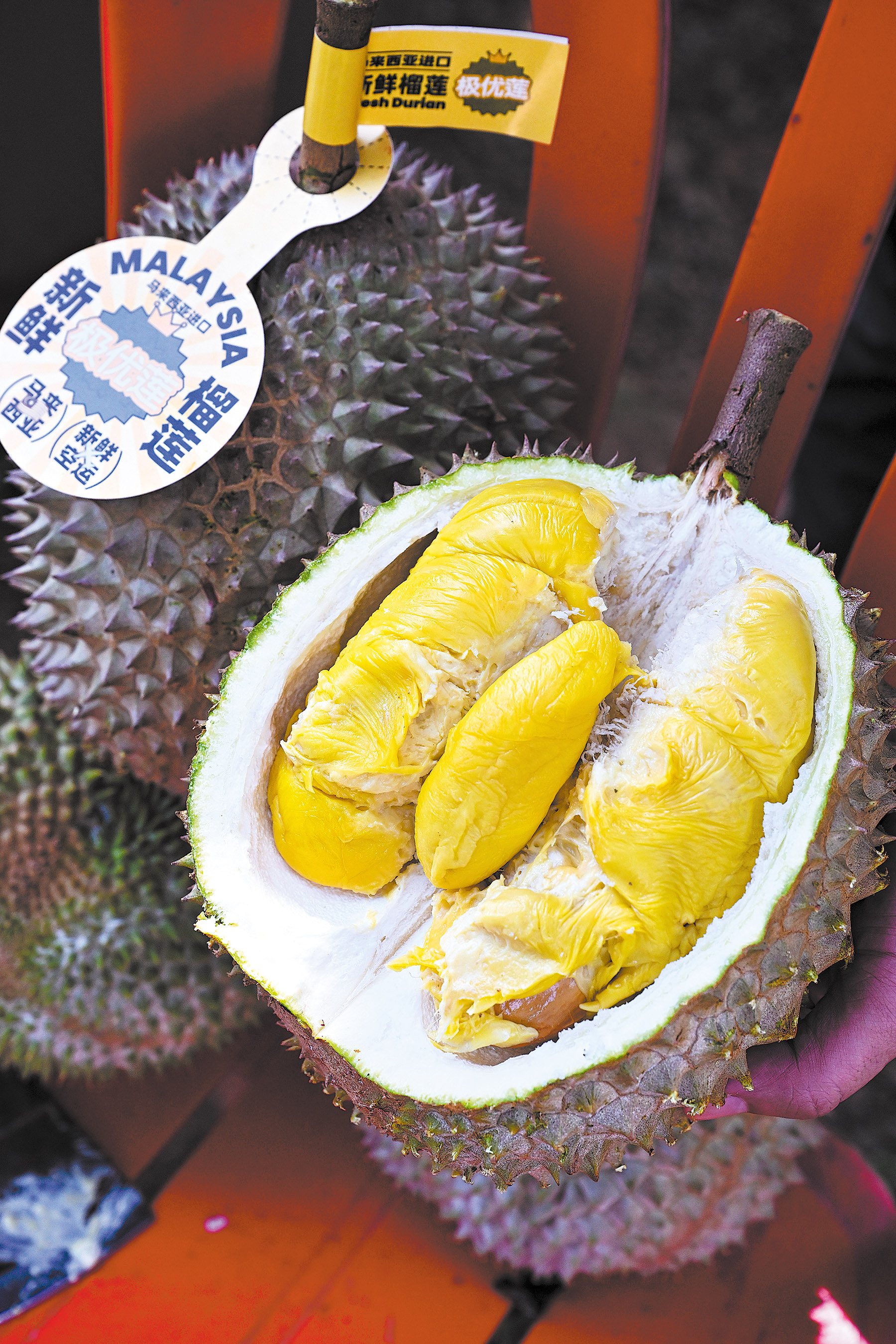
The tale of durians — a fruit loved by some and loathed by others — has a historical link to Chinese bonds with Southeast Asia.
In the 15th century, Chinese explorer Zheng He, during his legendary voyages to Nanyang, warmer and fertile geographical region along the southern coastal regions of China and beyond, encountered a mysterious fruit called du'er yan. He described it as having a strong odor but a sweet, delectable flesh.
While many are initially put off by the fruit's pungent aroma, once they taste it, the "king of fruits" often wins them over.
READ MORE: Stronger bonds power a new era of cooperation
Today, China is the world's largest consumer of durian, with Malaysia playing a pivotal role in meeting this insatiable demand. The strength of this demand is clear from the numbers.
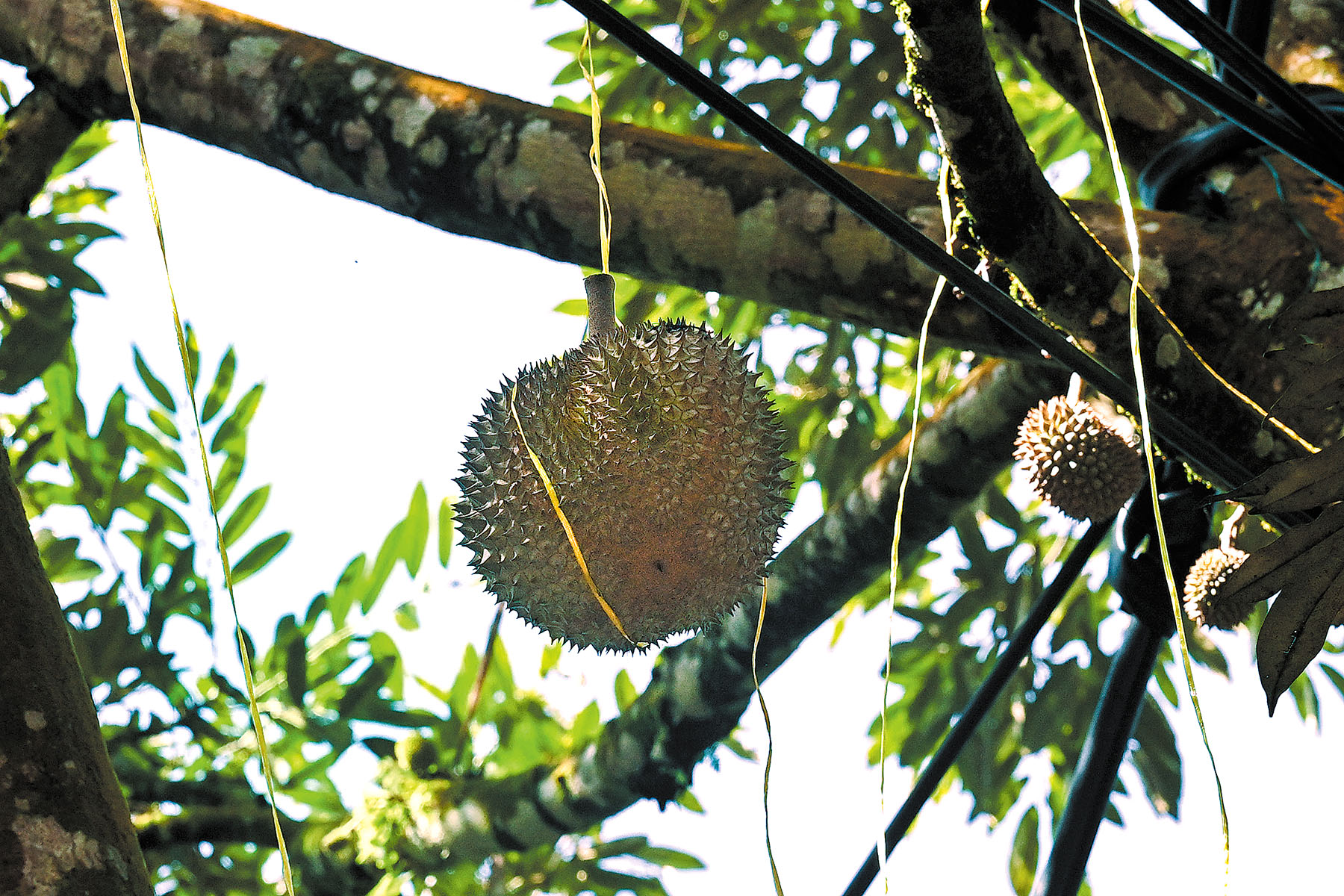
In 2024, China's durian imports set a new record, with over 1.56 million metric tons valued at nearly $7 billion, according to customs data.
With the largest market share for durians globally, China accounts for about 95 percent of the fruit's demand, making it the primary driver of the industry's explosive growth in Southeast Asia, the United Nations' Food and Agriculture Organization said.
For Malaysia, durians are more than just a symbol of culinary tradition — they are an economic powerhouse.
With approximately 90,000 hectares of durian plantations producing between 500,000 and 550,000 tons annually, the durian industry has become a crucial driver of Malaysia's rural economy.
Now, the opening of the vast Chinese market is accelerating this growth.
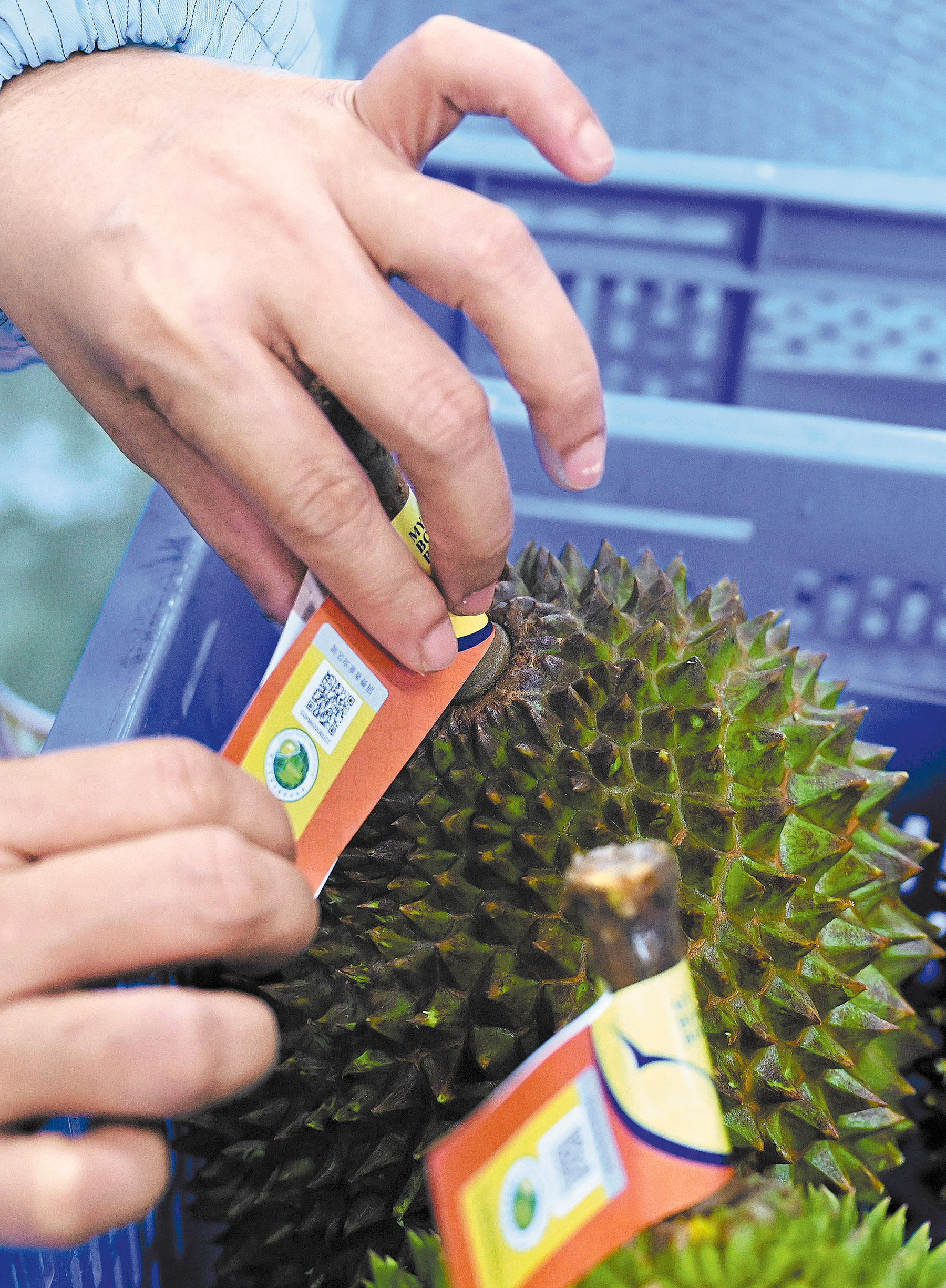
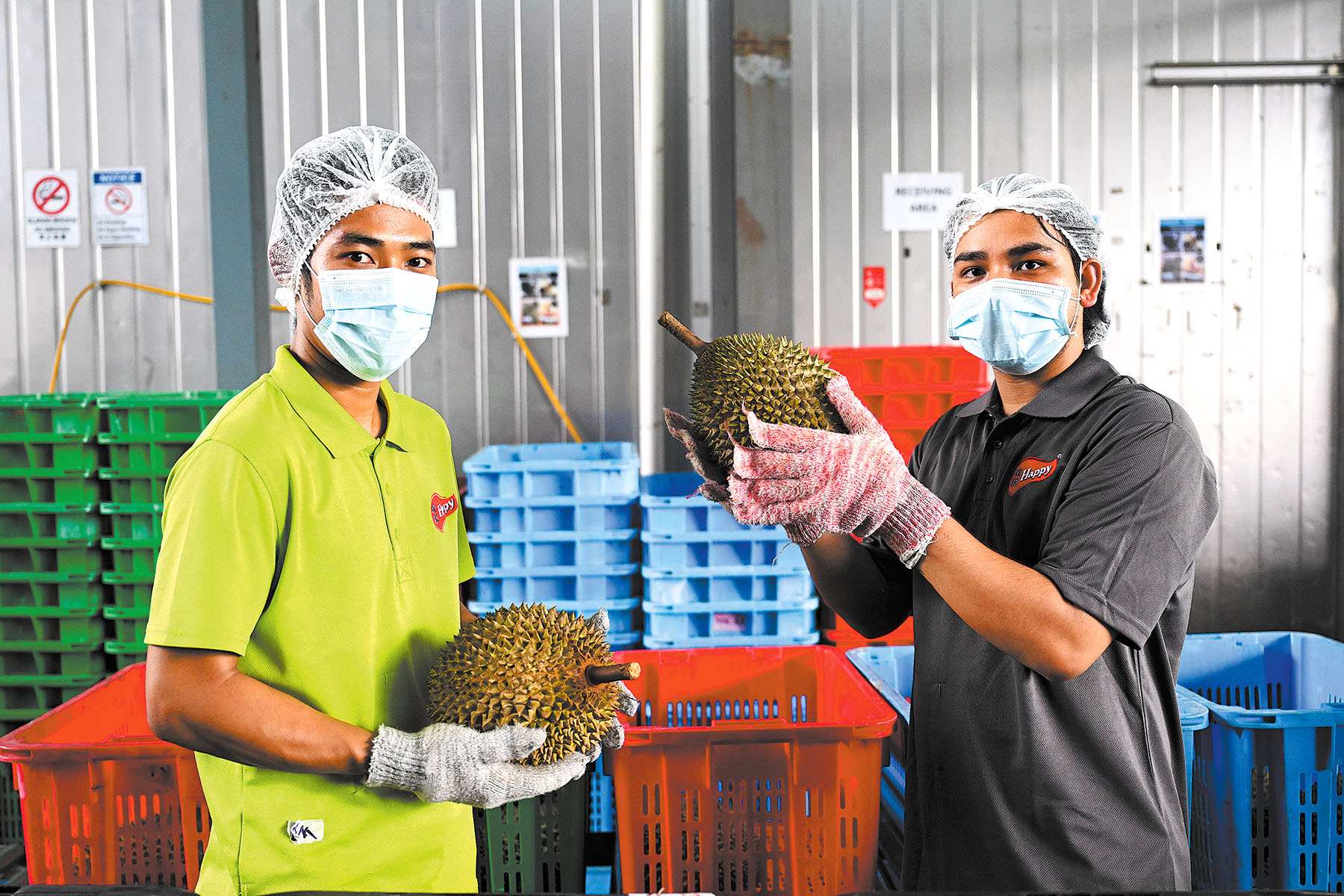
In recent years, the industry has flourished, especially following the opening of new air shipment routes that allow fresh durians to reach Chinese consumers in just 36 hours.
Malaysia began exporting frozen durian products to China in 2011, followed by whole frozen durians in 2019. However, due to traditional harvesting methods — where durians are left to fall naturally when ripe — coupled with limited freezing facilities, the country's export capacity long remained constrained. That changed in June 2024, when the two nations signed a phytosanitary protocol allowing fresh Malaysian durians to enter the Chinese market.
This agreement, which coincided with the celebration of the 50th anniversary of diplomatic relations between China and Malaysia, has injected new energy into Malaysia's durian industry.
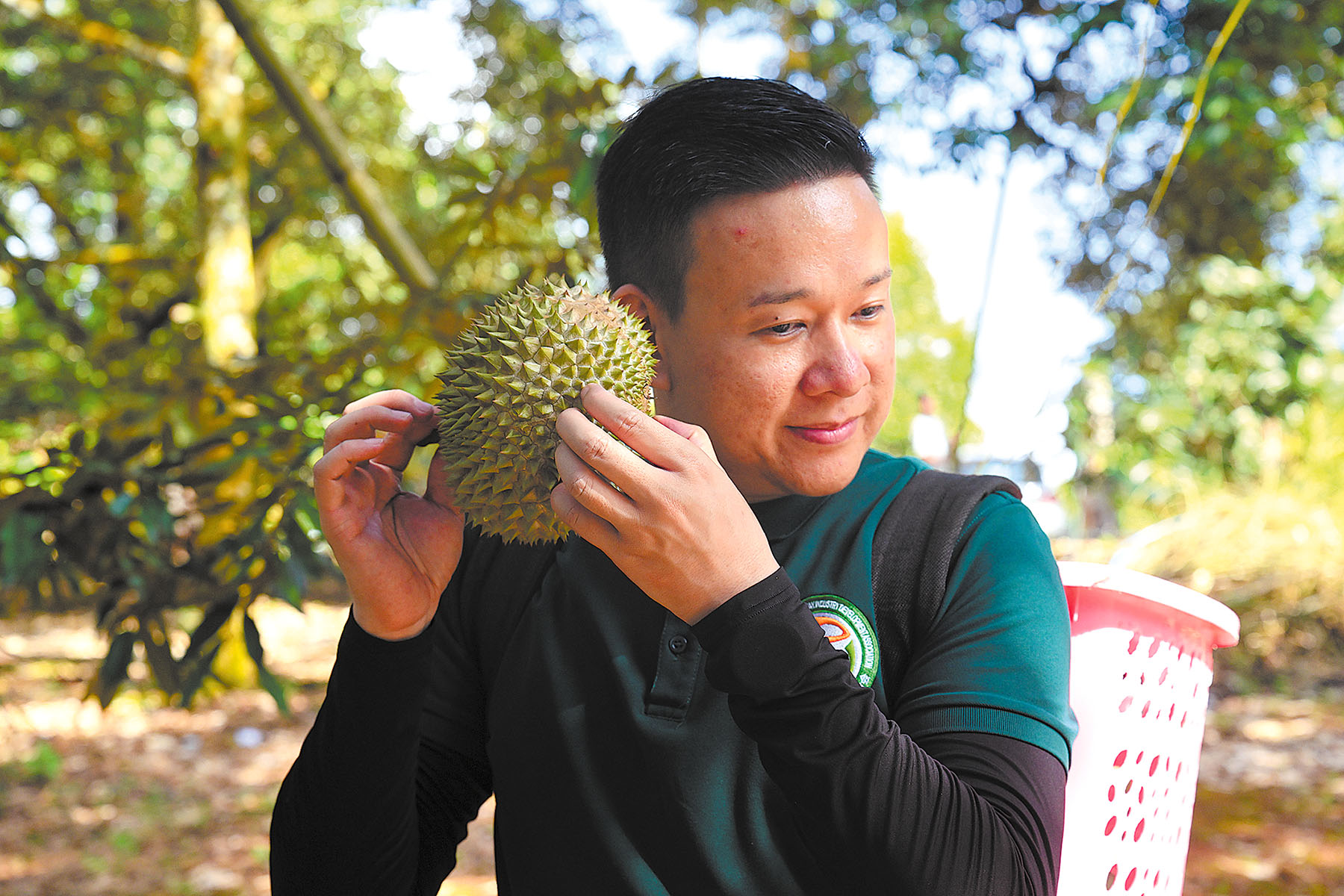
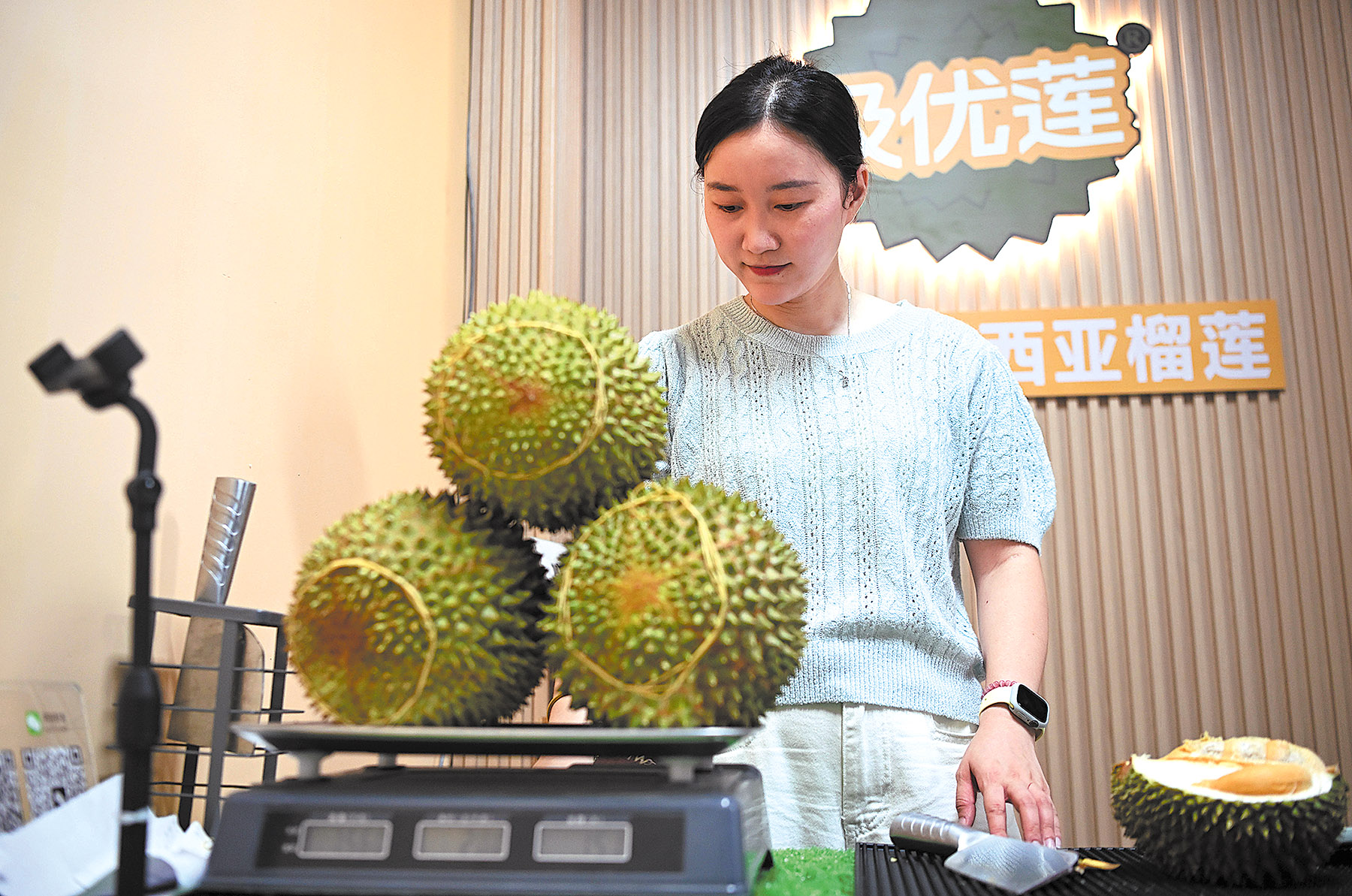
Expanding market
For Malaysians, durian farming is a source of livelihood, particularly for rural communities. With more Chinese consumers now enjoying this tropical fruit, Malaysia's durian industry is poised to reach new heights, with local farmers and businesses reaping the benefits of the expanding market.
According to industry experts, the Chinese market is not just helping to increase the value of Malaysia's durian exports, but also contributing to the rapid growth of the country's durian processing, packaging, and logistics industries.
Edwyn Chiang, secretary-general of the Malaysia International Durian Industry Development Association, said the breakthrough enables Chinese consumers to enjoy fresh Malaysian durians within 36 hours of harvest — a logistical feat made possible by the newly launched air shipment routes.
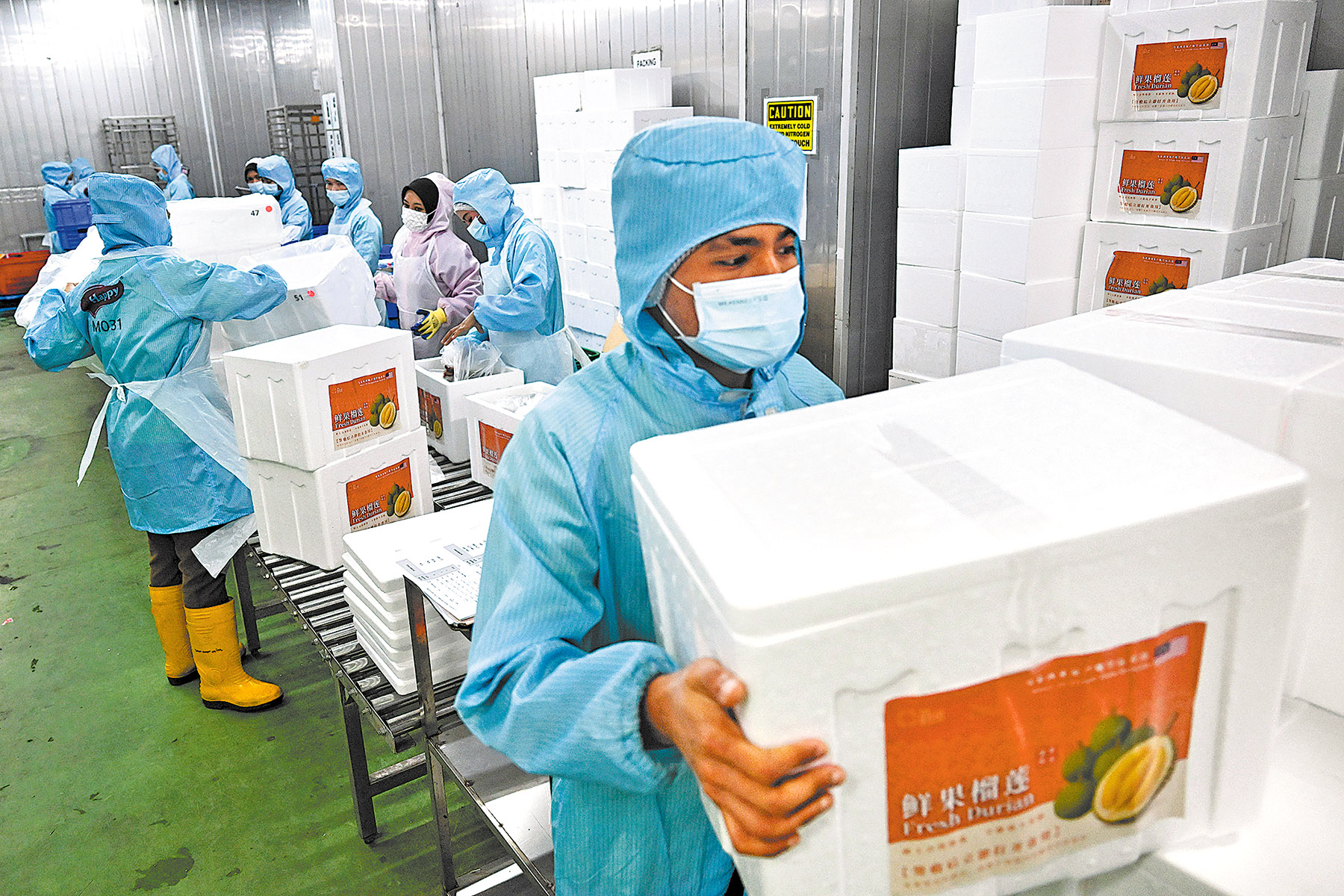
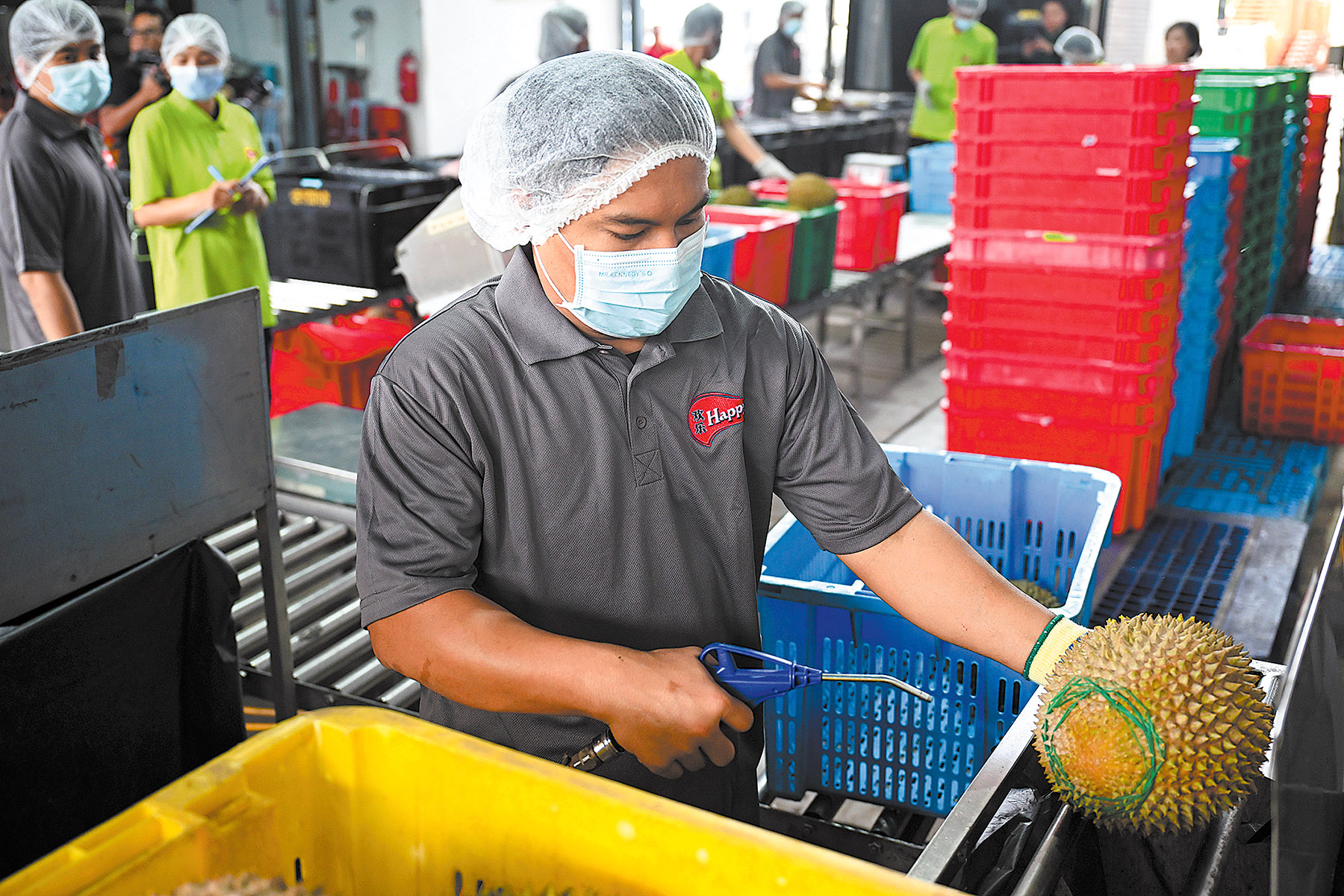
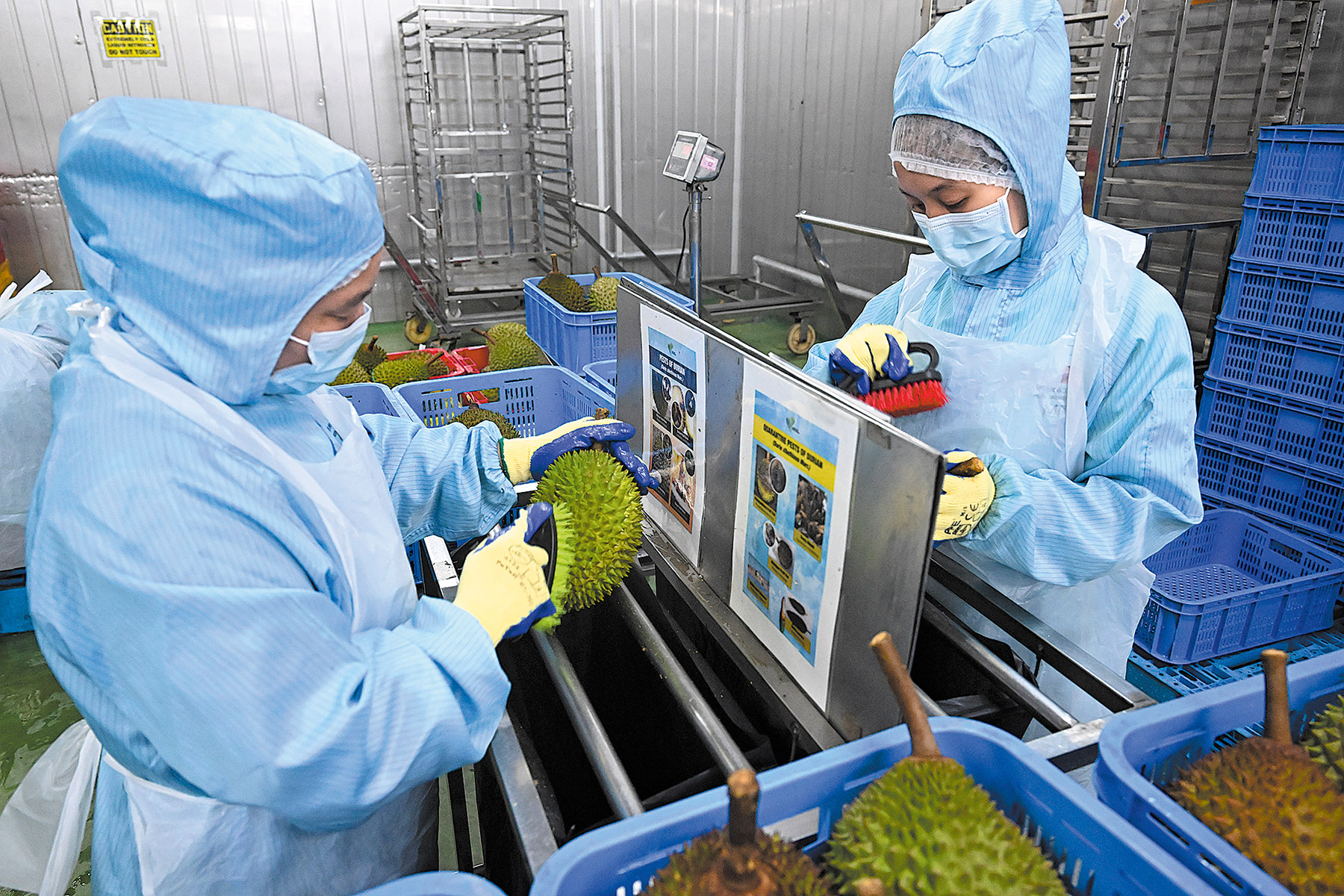
"I believe that this year, Malaysian fresh durians will reach more Chinese dining tables," Chiang said. He emphasized that durians harvested at full ripeness deliver the best flavor within two to three days, giving Malaysia a competitive edge in quality.
Chiang, a frequent visitor to China, has witnessed firsthand the transformative effect of the Chinese market. "From 2017 to 2023, over 70 percent of Malaysia's durian exports went to China," he said. With the entry of fresh durians, not only has their export value risen, but processing, packaging, and logistics sectors in Malaysia have also developed rapidly.
The implementation of the Regional Comprehensive Economic Partnership has further streamlined cross-border trade. For a highly perishable product like durian, faster customs clearance means better quality and higher value, Chiang added.
Xinhua contributed to this story.
Contact the writers at houchenchen@chinadaily.com.cn


